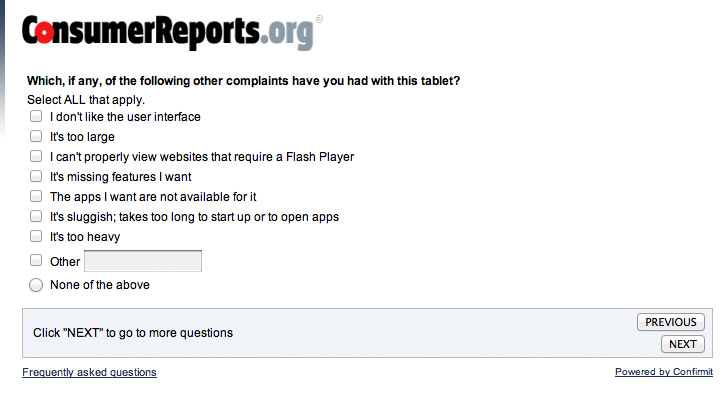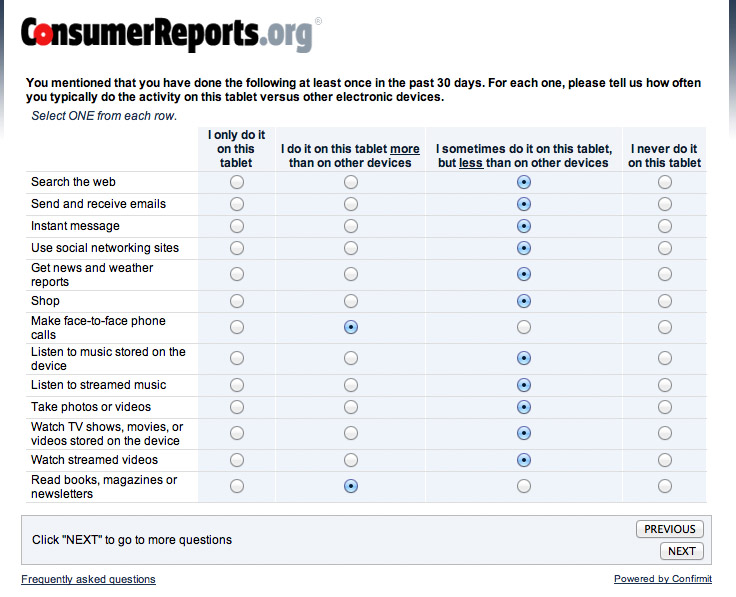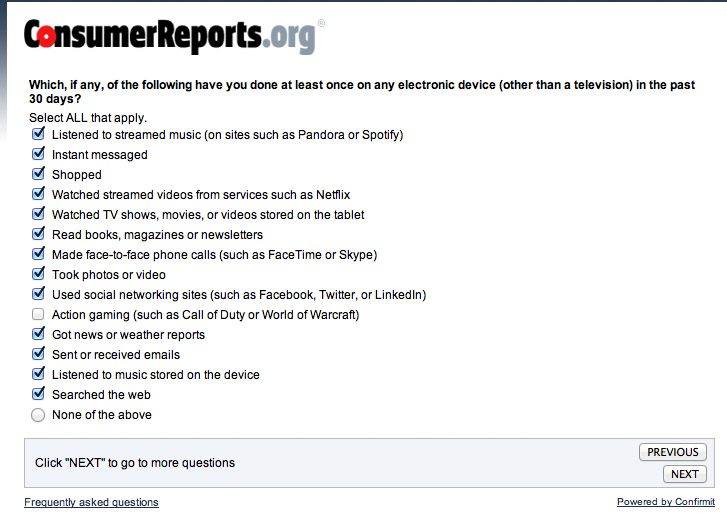I received an email from consumerreports.org this morning regarding tablets, mattresses and teflon cookware. Perhaps someone might expand on the various connections within and between those subjects.
In any event, I found the survey content interesting (particularly the obligatory flash question, which in my view is irrelevant). Here are a few screenshots (tap to view larger versions):



In my experience, iPad is years ahead of its few competitors, largely due to software and design excellence along with a world beating supply chain.
Follow the tablet and smartphone wars via these smart guides: Horace Dediu (Helsinki), Brian Hall (next door in Middleton) and Frederic Filloux & Jean-Louis Gassee (Palo Alto and Paris).
P.S. I found it interesting, yet unsurprising, that no questions were asked regarding the creation of things or information. I, in fact, use my iPad to create and update presentations, charts, write and occasionally edit images/video. In a pinch, I’ve also taken a photo or two and captured video with the iPad.